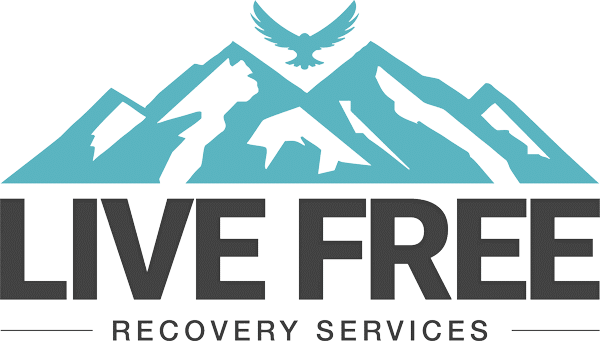Have you ever gone through an addiction treatment program but struggled to stay sober after completion? If so, you may benefit from a relapse prevention program. A relapse prevention plan is a program designed to help individuals who have successfully completed addiction treatment continue their recovery journey and remain abstinent from drugs and alcohol.
It’s only natural to slip back into old patterns of addiction, which is why creating a relapse prevention plan is an essential part of anyone’s path to recovery.
By recognizing warning signs of relapse, you can take proactive steps to avoid potential relapse. Once you have identified what puts you at risk of relapse, you can create a solid relapse prevention plan to help prevent it. Strategies may include healthy coping mechanisms such as exercise, talking with supportive people, journaling, or practicing mindfulness techniques.
Table of Contents
- What Exactly is a Relapse?
- Warning Signs of Relapse
- Why is Relapse Prevention Important?
- What Factors Lead People to Relapse?
- What Does HALT Mean in Relapse Prevention?
- Relapse Prevention Programs
- How Can I Prevent Relapse?
- What are My Triggers?
- Learn More About Our Relapse Prevention Program at Live Free Recovery
What Exactly is a Relapse?
Relapse occurs when someone with an addiction returns to use the substance or engages in the addictive behavior that they were attempting to stop. It is a normal part of recovery and can occur as part of the process, even after many months or years of sobriety. It can be due to a variety of factors, including stress, being triggered by an event or person, or simply not having the proper course of action in place for dealing with relapse triggers. Relapse does not mean you have failed and it is vital for those in recovery to recognize that relapse prevention strategies are a continuous and necessary process.
Warning Signs of Relapse
So, how can you recognize warning signs of relapse in yourself or someone you care about?
It’s important to be aware of the stages of relapse and pay attention to any early warning signs that may be present. The stages of relapse can be broken down into physical, emotional, and mental components.
Physical Relapse: Physical relapse is the actual use of substances after a period of abstinence. This stage typically involves engaging in substance-seeking behaviors, such as buying drugs or alcohol or reaching out to people involved with using substances.
Emotional Relapse: Emotional relapse is characterized by a return to old unhealthy behaviors and can be more difficult to identify than physical relapse. Signs of emotional relapse may include withdrawal symptoms such as anxiety, restlessness, and irritability, avoiding healthy activities, isolating oneself from support systems, negative thought patterns, withdrawing from family and friends, and displaying signs of depression.
Mental Relapse: Mental relapse is the process of thinking about substance use and planning how to engage in it again. This stage can involve fantasizing or daydreaming about drinking or using drugs and making plans to obtain substances. It is important to be aware of and address cravings, as they can quickly lead to physical relapse.
Why is Relapse Prevention Important?
Relapse prevention programs are designed to help individuals maintain long-term sobriety by providing them with the skills, resources, and support they need. These programs teach relapse prevention strategies such as identifying relapse triggers, managing cravings and stress, maintaining healthy relationships, finding meaningful activities, and developing relapse prevention activities.
Addiction is considered a chronic relapsing disease. This is because relapse is very common. The only way to truly achieve long-lasting recovery is to maintain sobriety. Therefore, developing a relapse prevention plan is an important part of our drug rehab programs in NH and can help individuals stay the course.
What Factors Lead People to Relapse?
Many factors may contribute to relapse, but here are some of the most common:
- Social Pressure: It’s easy to succumb to the pressure of social drinking or drug abuse, as it can be a way for us to bond with others and feel accepted in a group. Unfortunately, this often leads to relapse due to the presence of these triggers in our environment.
- Stress: Stress is a frequent culprit of substance abuse, especially for those who previously resorted to it as an escape from their stressful life scenarios. Whether stemming from work or home issues, stress can be the ultimate trigger and should not go overlooked by loved ones.
- Lack of Support System: Having a strong support system is essential for those in recovery. Without it, people may feel isolated and alone, which can make it difficult to stay on the right path.
- Boredom or being lonely: Boredom or loneliness can often be a source of temptation. Without something positive to occupy their time and mind, it can be easy to slip back into old habits.
- Unresolved trauma, mental illness, or other negative emotions can act as triggers for a recurrence of addictive behavior. That’s why when working towards recovery from any kind of addiction, mental health must always be taken into account. With proper care and treatment, future relapses can be prevented altogether.
- A lack of relapse planning can be devastating, as it leaves the individual unprepared to cope with temptations and manage life outside of treatment. Without having developed proper coping strategies, they are vulnerable and more likely to return to old habits.
- With no support from your loved ones, it can be incredibly difficult for a person to stay sober on their own. Having a strong support system during recovery is so essential because they provide an incomparable sense of encouragement!
By practicing self-care, drug addiction sufferers can reduce the risk of relapse and put themselves in a better position for long-term recovery. This requires getting adequate sleep, exercising regularly, eating healthy meals, and minimizing stress levels. It also means recognizing when you are susceptible to HALT feelings – be aware that drug cravings may come back when you are in a vulnerable state.
What Does HALT Mean in Relapse Prevention?
If you’re familiar with the term ‘HALT’, then you know it stands for Hungry, Angry, Lonely, and Tired – four of the most typical factors that lead to relapse.
This acronym is frequently mentioned in 12-step meetings such as AA or NA, as well as several rehabilitation programs! HALT should be a reminder to all those in recovery out there when they face any of these intense emotions: Stop! Don’t let hunger, anger, loneliness or tiredness overpower you, instead, take a pause and regain control.
Through a relapse prevention program, individuals gain insight into their triggers and establish strategies to stay away from people, places, and scenarios that may encourage drug use. Doing so helps them remain sober by preparing for potentially risky situations in advance.
Relapse Prevention Programs

After successful addiction treatment, relapse prevention programs help individuals develop a recovery plan that provides them with the required skills and tactics they need to identify any potential relapse triggers that might lead them to drug or alcohol use. A comprehensive relapse prevention program is an essential component of substance abuse treatment.
It teaches individuals how to recognize and manage high-risk situations, identify coping strategies for cravings, develop a support system of family and friends to help maintain sobriety, and set long-term goals. Through relapse prevention programs, those in recovery are better equipped to handle the temptations of relapsing and remain on their path to sobriety with confidence.
Relapse prevention programs may include group counseling, individual therapy, medication management, relapse triggers identification as well as activities aimed at building skills for avoiding relapse such as family therapy sessions.
It is essential that family members are included in the recovery process of those with substance use disorder. Studies have shown that relapse rates are significantly lower when family members are involved in treatment. This is due to improved self-esteem and self-confidence through family support for the individual in recovery. Additionally, family-based interventions can identify health conditions that may not have been noticed during treatment and provide healthcare professionals with more insight into a person’s health status.
Other Benefits of Relapse Prevention Programs
Aside from providing support for individuals in recovery, relapse prevention programs also offer a wide range of benefits. These can include improved communication and social skills, increased self-care and personal development skills, more effective problem-solving strategies, improved career prospects, as well as peer support groups for those struggling with alcohol abuse.
Support groups provide a sense of community that can help those in recovery feel supported and connected with others who have similar experiences. Career counseling services can help individuals gain skills for finding and maintaining employment, which is often a goal for people in recovery. With a combination of these benefits and resources, individuals in recovery can begin to find hope and stability in their lives.
How Can I Prevent Relapse?
Relapse prevention is an ongoing process that requires commitment and dedication. There are many ways to prevent relapse, including:
- Developing healthy coping skills and relapse prevention plans to address triggers
- Connecting with a support system, such as attending recovery meetings or therapy sessions
- Avoiding high-risk situations and environments that could lead to relapse
- Leading an overall healthier lifestyle by eating well, getting sufficient sleep, exercising regularly, and managing stress levels.
What Should I Include in a Relapse Prevention Plan?
A relapse prevention plan should include strategies for managing cravings, identifying relapse triggers, and developing coping skills to deal with stress or other relapse risk factors. It is important to develop a relapse prevention plan that is tailored to the individual in recovery as plans should be based on an individual’s unique needs and challenges.
In addition, relapse prevention plans can also include steps such as:
- Developing healthy relationships with individuals who do not engage in substance abuse
- Improving communication skills in daily interactions at work or with loved ones
- Developing daily routines to keep you on a set path to avoid triggers and stress
- Do activities that help you feel relaxed and at peace. This will help your mind stay clear and calm.
- Creating emergency contacts who can provide support during times of need
Core Components to Address in Your Relapse Prevention Plan
Crafting an effective plan requires you to answer the following questions in precise detail. The more comprehensive your answers, the better chance of achieving success with what you have planned.
What are My Triggers?
Knowing the factors that contribute to relapse is an essential part of your recovery plan, and it takes time to identify them. To get started in creating your relapse prevention plan, ask yourself these important questions:
What people, places, or things could make me vulnerable?
Are there certain scenarios where I am more likely to give in to temptation? It’s also wise for you to keep revisiting this list as new triggers come up so that you’re better prepared when cravings arise.
Triggers include persons, places, and things that can cause you to relapse. You may not be able to identify all of them initially, so it’s important to keep updating your plan as you discover your triggers. To help develop your plan initially ask yourself the following questions:
- Who are the people that make you think about drinking alcohol or using drugs?
- Where have I used substances in the past? How can I prevent myself from going to those places again?
- What were my emotions and feelings that caused me to engage in substance abuse?
- Is there a specific time of year, such as a holiday or certain date, that makes me crave alcohol or otherwise abuse substances?
How Will I Manage Cravings and Triggers?
It’s impossible to eliminate cravings and triggers entirely but there are many coping strategies you can use to manage cravings when the urge to drink or use drugs arises. Here are some tips for self-care when cravings become too hard to manage:
- Try deep breathing exercises – in through your nose for four seconds and out through your mouth for four seconds – this helps to reduce cravings and the urge to drink or use drugs.
- Exercise can help get your mind off cravings, as well as improve your mood.
- Stay connected with friends and family who support your goal of recovery – they can provide much-needed encouragement and distraction when cravings become too strong.
- Find healthier ways to cope with cravings – this could include meditation, creative projects, or physical activities such as going for a walk.
- Make sure to take breaks throughout the day and practice self-care – this includes getting enough sleep, eating nutritious meals, and engaging in relaxation techniques like yoga or mindfulness.
- Connect with other people who are in recovery – mutual support can help to build a sense of community and provide motivation.
- Find healthy activities that you enjoy – this could involve joining a sports team, volunteering, or taking part in your local community. All of these will
- Talk to a mental health professional – they can provide additional coping strategies for cravings and be an important source of support.
What Support Resources Do I Have or Need?
In order to stay focused and motivated, you should seek out assistance from those around you. Why not call on your friends or family for encouragement? Or, even better yet– check out the multitude of local support groups in your area so that if one becomes unavailable, there are still plenty more sources of help! Just like with keeping track of potential triggers for relapse, make sure to keep an up-to-date list of available resources as well.
What Changes to My Routine Do I Need to Keep on Track?
To make space for positive habits and eliminate negative ones, you may need to adjust your routine. This might mean no longer engaging with certain people or changing the route home from work in order to avoid a particular hangout spot. It’s essential that you inspect your day-to-day activities thoroughly so they are guiding you in the right direction.
Regularly Updating Your Relapse Prevention Strategies
Relapse prevention planning is a continuous process that must be adapted as life changes. While your initial plan may look different six months into recovery than it did after leaving the program, this is perfectly natural given all of the triggers and obstacles you will face along your journey to sobriety. It’s vital to address these issues as they arise so that you can stay on track with maintaining lasting recovery.
Fortunately, you will be equipped with new skills to help deal with these triggers more effectively – allowing your strategies to become increasingly sophisticated and successful in managing them quickly. As you develop your new healthy routine, it will become increasingly valuable to you, and soon enough maintaining it will be a priority in your life.

Learn More About Our Relapse Prevention Program at Live Free Recovery
At Live Free Recovery Treatment Center, we want to equip our clients with the tools they need to manage new life and sobriety. Our relapse prevention program helps people build a new foundation for their recovery – including how to recognize triggers and stressors that can lead to relapse. We also create personalized treatment plans which include follow-up care, individual and group therapy, educational courses, and aftercare programs.
At Live Free Recovery we utilize relapse prevention in all of our treatment programs to help individuals achieve long-lasting recovery. Learn more about our relapse prevention program today!
Contact us to find out how you can start your journey toward long-term recovery. We look forward in helping you achieve the life of sobriety and freedom that you deserve.
We’re here for you, every step of the way. Let us help you live free from addiction today!
Published on: 2023-01-05
Updated on: 2023-12-05
